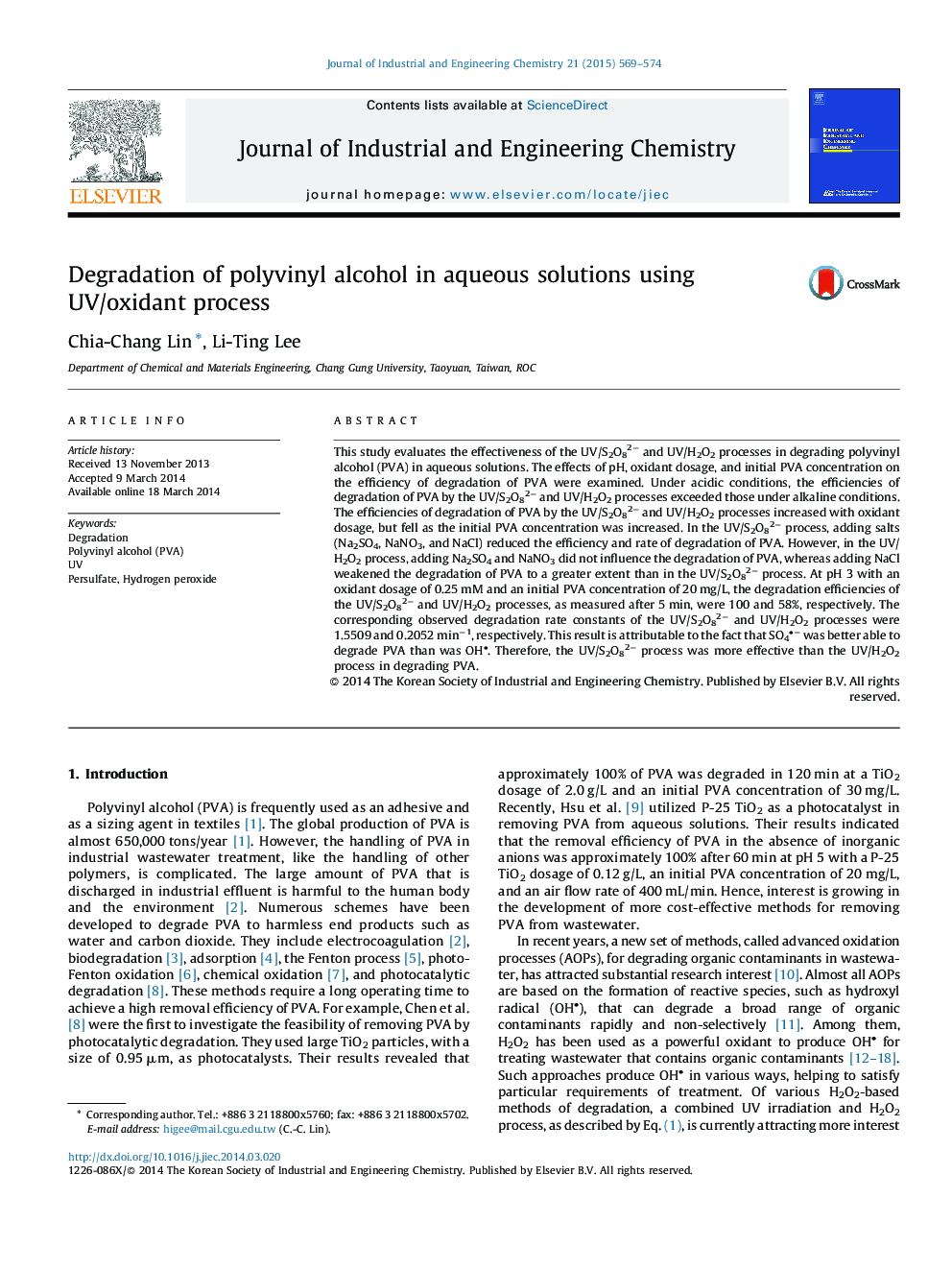| کد مقاله | کد نشریه | سال انتشار | مقاله انگلیسی | نسخه تمام متن |
|---|---|---|---|---|
| 226952 | 464811 | 2015 | 6 صفحه PDF | دانلود رایگان |

This study evaluates the effectiveness of the UV/S2O82− and UV/H2O2 processes in degrading polyvinyl alcohol (PVA) in aqueous solutions. The effects of pH, oxidant dosage, and initial PVA concentration on the efficiency of degradation of PVA were examined. Under acidic conditions, the efficiencies of degradation of PVA by the UV/S2O82− and UV/H2O2 processes exceeded those under alkaline conditions. The efficiencies of degradation of PVA by the UV/S2O82− and UV/H2O2 processes increased with oxidant dosage, but fell as the initial PVA concentration was increased. In the UV/S2O82− process, adding salts (Na2SO4, NaNO3, and NaCl) reduced the efficiency and rate of degradation of PVA. However, in the UV/H2O2 process, adding Na2SO4 and NaNO3 did not influence the degradation of PVA, whereas adding NaCl weakened the degradation of PVA to a greater extent than in the UV/S2O82− process. At pH 3 with an oxidant dosage of 0.25 mM and an initial PVA concentration of 20 mg/L, the degradation efficiencies of the UV/S2O82− and UV/H2O2 processes, as measured after 5 min, were 100 and 58%, respectively. The corresponding observed degradation rate constants of the UV/S2O82− and UV/H2O2 processes were 1.5509 and 0.2052 min−1, respectively. This result is attributable to the fact that SO4− was better able to degrade PVA than was OH. Therefore, the UV/S2O82− process was more effective than the UV/H2O2 process in degrading PVA.
Journal: Journal of Industrial and Engineering Chemistry - Volume 21, 25 January 2015, Pages 569–574